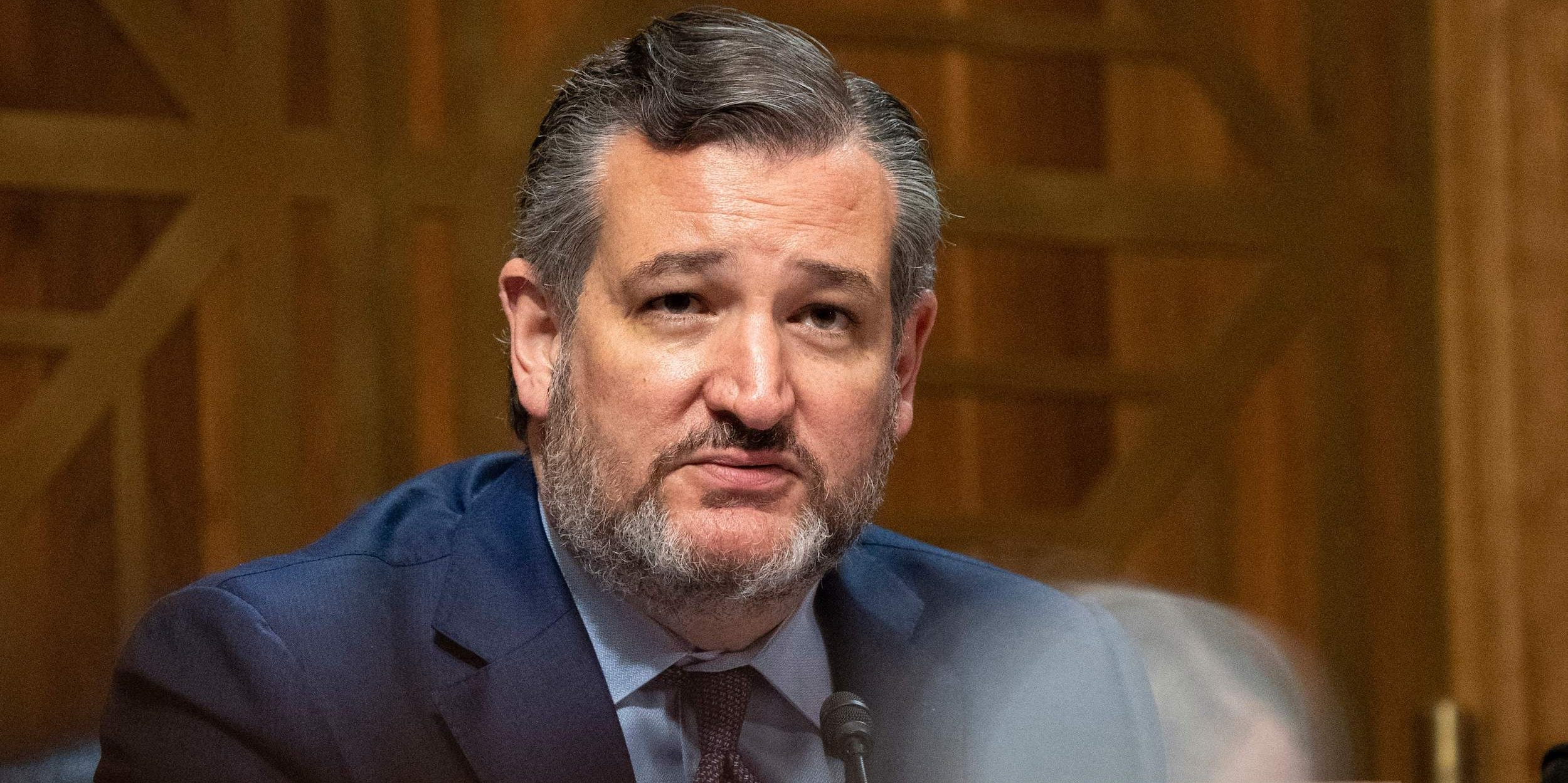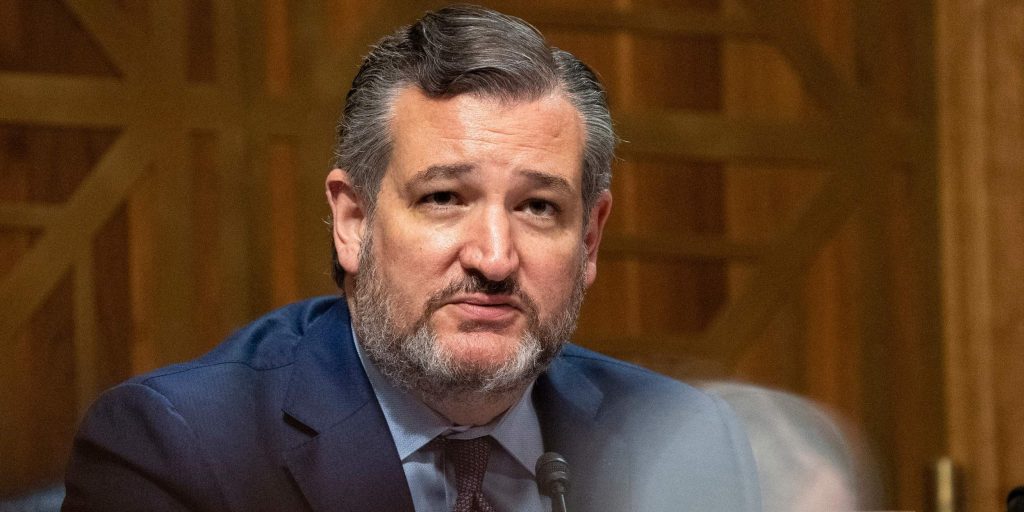
Ken Cedeno/AFP via Getty Images
- "Abolish the police" is an activist slogan, not a policy embraced by elected Democrats.
- In New York City, for example, the police budget is once again on the rise.
- Police reform is popular. Activist slogans are not. Some Republicans want to conflate the two.
At a hearing last month, Sen. Ted Cruz, a Republican from Texas, made an astonishing claim: Leading members of the Democratic Party don't just want to reform policing, he said – they want to get rid of law enforcement altogether.
"There are multiple elected Democrats who vocally embrace abolishing the police," Cruz claimed. "It's not just the mayor of New York City. It's not just the mayor of Minneapolis. It's not just the mayor of Portland that advocated abolishing the police."
As Cruz told it, it was getting damn near impossible to find an elected Democrat who doesn't support "getting rid of the men and women in blue that keep us safe."
The problem is that it's not true, of course, and Cruz's office could not provide any proof that it is. This is something the senator said was not a mere inference but a position these mayors had been vocal about endorsing. Asked for such evidence, Dave Vasquez, a spokesperson for the senator, told Insider he'd be "following up shortly." He never did.
An activist slogan, not a Democratic position
The truth is that while some activists have embraced the slogan, "Abolish the police," few of them would be happy if they were identified as Democrats, positioning themselves far to the left of any mere liberal. And none of them hold public office, much less the top job in cities where police played an active role in both inciting and quelling civil unrest last summer.
Fewer still truly believe what Republicans like Cruz would have people think.
"Defund does not mean abolish policing," notes Rashawn Ray, a senior fellow at the Brookings Institution. "And, even some who say abolish, do not necessarily mean to do away with law enforcement altogether."
For better or worse, these activists have chosen revolutionary rhetoric for what is essentially a reformist demand: not that we abolish the entire concept of upholding the law, but that we end policing as it exists today - where officers from outside the community enjoy "qualified immunity" for wrongdoing on the job - and replace it with a system where cops with guns are, for example, not the first responders to every mental health crisis.
At most, elected Democrats support shifting some money from law enforcement to other priorities. Bill de Blasio, the New York City mayor that Cruz accused of wanting to abolish blue lives, embraced that after nationwide protests against police killings. The result was the country's largest police department receiving $10.2 billion in 2021, down from $10.5 billion the year before - much of it due to a "one-time reduction in overtime expenses," according to the nonpartisan Citizens Budget Commission.
Indeed, for 2022, the New York police budget is going back up to $10.4 billion. Abolition this is not.
Abolish cops? Democrats say 'that's a bad idea'
In Minneapolis, Mayor Jacob Frey - another proponent of "abolishing the police," per Cruz - has discussed a "structural revamp" of the police department that employed Derek Chauvin, the officer convicted of murdering George Floyd. "But abolishing the police department? No, I think that's a bad idea," he told NPR.
In Portland, meanwhile, the police budget under Mayor Ted Wheeler - another alleged proponent of abolition - went from $214.9 million in 2017, his first year in office, to $244.6 million this year.
Sen. Cruz says he thinks "abolishing the police is insanity." He should take comfort, then, in the fact that even America's liberal mayors have no intention of doing it.
Last month, Sen. Tim Scott, a Republican from South Carolina, said negotiations over a bipartisan police reform bill had fallen apart because his Democratic colleagues had sought to "defund" law enforcement.
That was too much for even the Fraternal Order of Police, which represents more than 356,000 members of law enforcement, and the International Association of Chiefs of Police. "[A]t no point did any legislative draft propose 'defunding the police,'" the groups said in a joint statement. Indeed, the opposite: "the legislation specifically provided additional funding."
The truth is that, to the chagrin of some on the left, the number of Democrats who support significant cuts to police spending is few, and the number who support abolishing law enforcement altogether is zero. And the truth is Republicans know this.
They also know that, as slogans go, defunding or abolishing police (whatever nuance activists might intend) poll terribly, and one way to derail overwhelmingly popular police reform - and hurt the Democratic Party - is by tying it to something that it is not.
The Senate is no stranger to grandstanding or demagoguery - to politics - but extraordinary claims require at least something in the way of evidence. When asked for some, Cruz and his staff came up empty.
Have a news tip? Email this reporter: [email protected]

